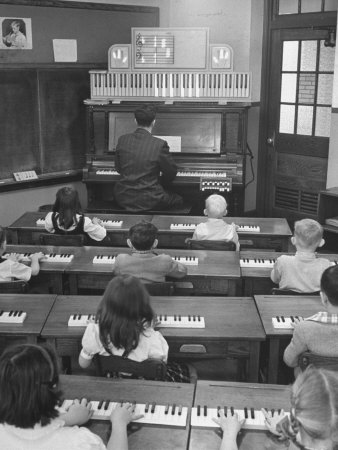From a paper by Chan WY, Qu H, and Mak WH:
A major obstacle in the appreciation of classical music is that extensive training is required to understand musical structure and compositional techniques toward comprehending the thoughts behind the musical work. In this paper, we propose an innovative visualization solution to reveal the semantic structure in classical orchestral works such that users can gain insights into musical structure and appreciate the beauty of music. We formulate the semantic structure into macrolevel layer interactions, microlevel theme variations, and macro-micro relationships between themes and layers to abstract the complicated construction of a musical composition. The visualization has been applied with success in understanding some classical music works as supported by highly promising user study results with the general audience and very positive feedback from music students and experts, demonstrating its effectiveness in conveying the sophistication and beauty of classical music to novice users with informative and intuitive displays.
Someone once told me that they didn’t want to study classical music because knowledge would ruin their ability to appreciate the music. I find this analogous to watching a sport: if you don’t know the rules, you can’t really appreciate the game. In the same way, I find that the more I study music, the greater appreciation I have for everything I listen to.
I am puzzled why misconceptions like the one above exist; it seems that somehow music, in many people’s minds, occupies a place apart from the “real” world that the rest of us experience. Music, however, is a part of the “real” world, and therefore is subject to all the same things that everything else is. Therefore, it’s time for us to question these popular assumptions and ask ourselves whether we are perpetuating these myths. The study authors, above, have shown that learning about the details of how a musical composition is constructed adds to our enjoyment; the only news is that this should be a surprise.
